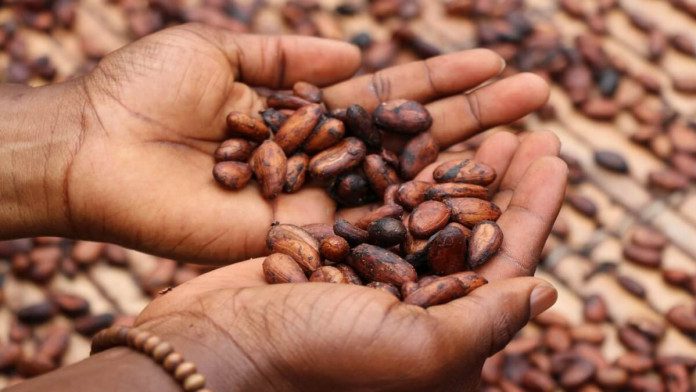News in Brief:
– Cocoa prices in Taraba state, Nigeria, have reached record highs of ₦950,000 per bag due to high global demand.
– While farmers are enjoying a boom, there are concerns about middlemen dominating the market and potentially mislabeling Taraba’s high-grade cocoa.
Cocoa farmers in Taraba state, Nigeria, are experiencing a windfall as the price of the crop skyrockets to unprecedented levels. A local news report claims that grade 1 cocoa beans are now fetching a staggering ₦950,000 per 100kg bag, the highest price ever recorded in the state, being a jump from the former prices of between ₦200,000 and ₦400,000.
This surge in cocoa prices is attributed to high international demand for the commodity. Farmers with stockpiles from last year’s harvest are reaping significant profits, with middlemen flocking to Taraba from other regions to purchase their cocoa.
Kurmi Local Government Area (LGA) has emerged as a focal point for the cocoa trade in Taraba, attracting a growing number of middlemen, particularly from southeastern and southwestern Nigeria. Farmers report that middlemen have traditionally dominated cocoa buying in the area.
Prices soar, but transparency remains a concern
While the current price per bag is between ₦950,000 and ₦1 million, some farmers express uncertainty about the actual market value. Adamu Musa, a cocoa farmer, told reporters that the lack of local involvement in the international cocoa trade raises concerns about transparency in pricing.
There are allegations that some middlemen are mislabeling Taraba’s high-quality cocoa as produce from other states. Sources suggest that Taraba’s cocoa is particularly sought after due to its superior grade, leading some middlemen to falsely attribute its origin.
Meanwhile, farmers in the state are calling for the establishment of a cocoa grading center within the state. This facility would ensure proper grading and labeling of their produce, potentially increasing their bargaining power and profits. Additionally, farmers have advocated for the creation of cooperative societies to give them a greater voice in determining prices and selling their cocoa directly.



